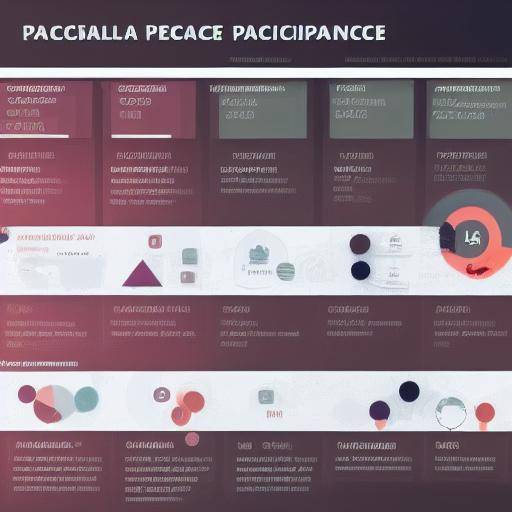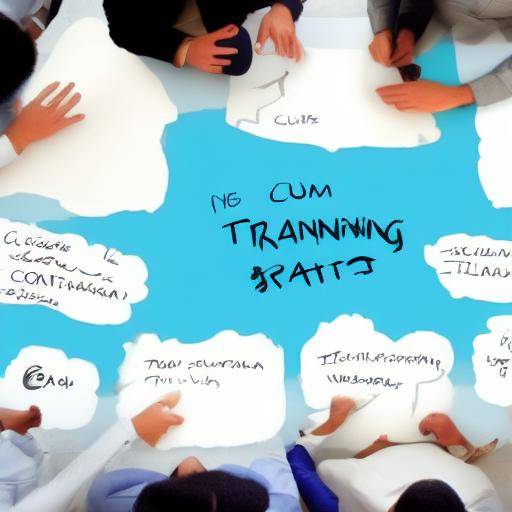
Introduction
Patience is a virtue that allows us to face difficult situations with calm and tranquility. In the context of conflict resolution, developing patience is crucial for effective and constructive handling of disputes. In this article, we will thoroughly explore how to develop patience in the context of conflict resolution and how to improve interpersonal skills in challenging situations.
History and Background
The idea of patience has been valued throughout history in various cultures and philosophies. From the teachings of great thinkers to religious traditions, patience has been regarded as a fundamental quality to maintain harmony and serenity in the midst of adversity. We will explore how these lessons have influenced how we address conflicts today.
Philosophical and Cultural Influences
- Buddism: In Buddhism, patience is one of the "perfections" (paramitas) necessary to achieve enlightenment. It emphasizes the importance of accepting difficulties calmly.
- Christianity: Patience is one of the cardinal virtues and is considered essential to Christian life, taught as a way of facing trials with faith.
- Stoicism: The Stoics, like Séneca and Marco Aurelio, promoted patience as a way of facing suffering and adversities without losing inner peace.
Benefits of Developing Patience
Patience plays a crucial role in conflict resolution. We will analyze in depth the benefits of developing patience, both personally and interpersonally.
Personal benefits
- Stress reductionpatience helps us to better manage our emotional reactions, reducing stress levels.
- Improving Mental Health: Being patient can decrease anxiety and foster a more positive and resilient mentality.
Interpersonal benefits
- Enhancing empathypatience allows you to listen and better understand the perspectives of others.
- Improving Relations: Facilitates peaceful conflict resolution and strengthens relations based on mutual respect.
- Constructive environment: Creates an environment in which all parties feel valued and understood, facilitating cooperation and collaboration.
Current Challenges and Trends
While patience is key in conflict resolution, it also faces challenges in a world where immediacy and impatience often prevail.
Challenges
- Culture of the immediacy: Current technology and culture encourage instant gratification, which can make it difficult to develop patience.
- Intensified emotions: In conflict situations, emotions can intensify, making it harder to maintain patience.
Current trends
- Mindfulness and Meditation: The growing interest in meditation and mindfulness reflects an effort to cultivate patience and full attention.
- Training in Skills: Organizations are recognizing the importance of patience and other soft skills for effective conflict resolution.
Practical Tips and Accessible Recommendations
We will offer practical advice and actionable recommendations to develop patience in conflict situations, including strategies to manage intense emotions and approaches to foster calm and reflection.
Strategies to Develop Patience
- Deep Respiration Practice: Before responding in a conflict situation, take a moment to breathe deeply and calm down.
- Listen.: Dedicates time to fully listen to the perspective of the other person without interrupting.
- Self-reflection: Reflect on your own emotional reactions and seek to understand the underlying causes of your impatience.
- Establishment of Realist Targets: Accepts that conflict resolution can take time and sets realistic expectations.
- Practice of empathy: Try to put yourself in the place of the other person and understand his feelings and views.
Comparative Analysis of Patience, Conflict Resolution and Interpersonal Skills
We will explore the similarities and differences between patience, conflict resolution and interpersonal skills, highlighting how these qualities intertwine and complement each other.
Similarities
- Empathy: Both patience and interpersonal skills and conflict resolution benefit from empathy.
- Effective communicationpatience improves the ability to communicate effectively and respectfully.
Variances
- Temporary approachpatience focuses on the ability to endure and wait, while conflict resolution focuses on addressing and resolving problems immediately.
Conclusion and Frequently Asked Questions
Conclusion
In conclusion, the key points presented in the article will be recapitulated, reinforcing the importance of developing patience to handle conflicts constructively. Readers will be encouraged to apply the knowledge acquired in their own lives and interpersonal relationships.
Frequently asked questions
- Why is it important to develop patience in conflict resolution?
- Developing patience effectively manages emotions and facilitates peaceful resolution of disputes.
- How can I practice patience in conflict situations?
- You can practice breathing techniques, listen actively and reflect on your own reactions before responding.
- What are the benefits of cultivating patience in the interpersonal domain?
- It improves relationships, promotes empathy and creates a constructive environment for conflict resolution.
- What role does empathy play in relation to patience in conflict resolution?
- Empathy allows us to understand and value the perspectives of others, facilitating a more understanding and patient resolution.
- How can I keep calm and patience when I am involved in an emotionally challenging conflict?
- Practice deep breathing, reflect before reacting and keep an approach to solving the problem instead of intense emotions.
- What are some practical strategies to improve my interpersonal skills in conflicting situations?
- Develop active listening, practice empathy, maintain clear and direct communication, and work in managing your own emotions.
This article has been designed to provide a comprehensive vision on the development of patience in the context of conflict resolution and interpersonal skills. With the information and recommendations presented, readers will be better equipped to deal with and manage conflicts effectively, fostering healthy relationships and personal growth.
























